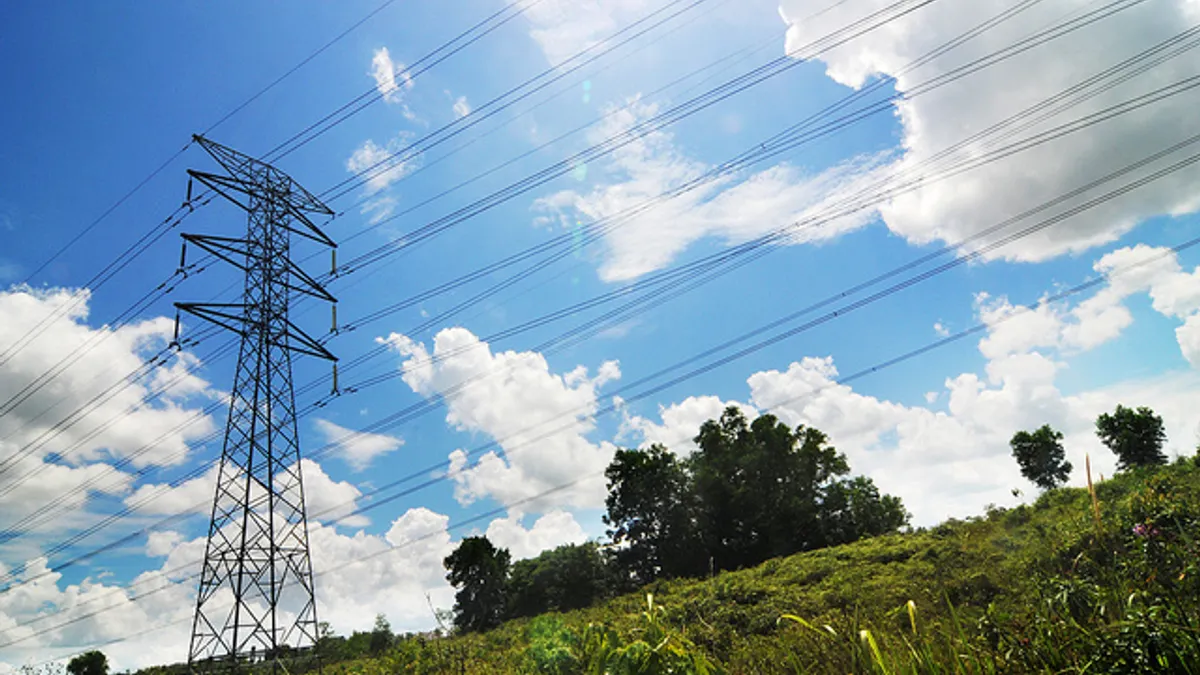Dive Brief:
- Central Maine Power Co. has applied for a Presidential permit to develop and operate an electric transmission line across the U.S.-Canada border to bring hydroelectricity into New England.
- Central Maine and its parent company Avangrid have proposed to construct the 1,200 MW New England Clean Energy Connect transmission line, which would run from the Canadian border to a substation in Lewiston, Maine.
- The project was one of several submitted in response to Massachusetts' Clean Energy Request for Proposals, aiming to help utilities procure 9,450,000 MWh of renewable energy.
Dive Insight:
Central Maine is among a handful of companies vying to develop transmission projects bringing Canadian hydropower into the United States. Comments on the proposal are due in 30 days.
The proposed line would cross the U.S.-Canada border in Beattie Township, Maine, and continue to the point of first interconnection with the ISO-New England operated grid at CMP’s Larrabee Road Substation in Lewiston, Maine.
The project includes approximately 145.3 miles of 320-kV overhead high-voltage direct current transmission line running to a new 1,200 MW converter station at the Merrill Road Substation in Lewiston, Maine.
Massachusetts' RFP, issued earlier this year, was a joint request from the Department of Energy Resources and the state's investor-owned utilities. But DOE said that before a Presidential permit can be issued, it must determine the project’s "impact on electric reliability by ascertaining whether the proposed project would adversely affect the operation of the U.S. electric power supply system under normal and contingency conditions, and any other factors that DOE may also consider relevant to the public interest."
DOE must also obtain agreement from the Secretary of State and the Secretary of Defense before taking final action on a Presidential permit application.
The New England transmission line is slated to become fully operational in 2022, according to the company.
"The introduction of these new resources into the New England electricity market will help hold down future wholesale electricity prices by reducing the region’s dependence on costly fossil-fuel-fired generation," according to the developers' web site. "Significant cost savings will flow to consumers in Massachusetts, Maine and throughout New England."
Massachusetts customers would save $1.7 billion over the 20-year life of the project, developers estimate. Maine customers stand to save $450 million. The total savings for customers in the six New England states are forecast to be $3.9 billion, according to Central Maine Power.















